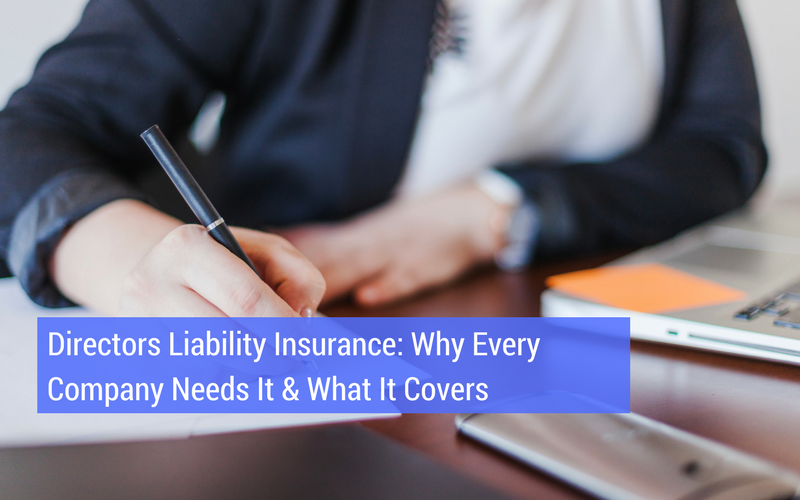Directors Liability Insurance: Why Every Company Needs It & What It Covers

Managing a company comes with many duties and responsibilities. And with the globalization of the economy, acting as a director of a company becomes increasingly more difficult. As opposed to the past when directors only had to pay attention to the local market, today they need to make tough decisions based on information received about a number of different markets and competitors, while also trying to comply with the many strict regulations and take into account their auditors’ opinion.
With so much stress and obligations put on them, even experienced directors can make unwanted mistakes and become personally accountable, resulting in expensive lawsuits, fines and legal costs. This explains why so many companies struggle to find competent directors that will be willing to manage their operations. For this very reason, it’s important that a company has a comprehensible directors liability insurance policy as part of its risk management strategy. This way, it’s a lot easier to attract talent, as directors can have the peace of mind they won’t become legally accountable for any potential errors they unwillingly do.
Regardless of how large a company is, or whether it works for profit or not, it can be subjected to directors liability claims. This means that it’s always a smart decision for any business organization to sign up for a directors liability insurance, including family businesses, small enterprises and even non-profits and educational institutions. This policy is very beneficial for attracting outside individuals to take part in the board of the directors, as many would not want to become involved if it means there’s a risk of losing their assets.
A corporate directors liability insurance may cover several individuals responsible of managing an organization such as executive directors, non-executive directors, executive officers, as well as other employees involved in decision making. The insurance generally provides full cover for twelve months on a “claims made and notified” basis, which basically means the insurer needs to be notified during the period the policy is active.
When a directors liability insurance policy is set up, the insurer is responsible to provide full financial compensation for directors and officers against: claims made by investors and shareholders suspecting dishonesty and mismanagement, claims by dissatisfied customers, claims by regulatory authorities for breaches of the Corporations Act, claims for inaccurate or inadequate disclosure, claims by the ATO for tax owed by the company, etc. However, it’s important that the policy does not include claims outside the period the policy was active, criminal or intentional acts, fraud, property damage and bodily harm, and illegal remuneration or personal profit.






